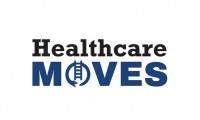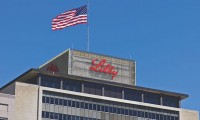-
AbbVie ends 2023 on a high taking the leading spots as the biggest drug ad spender in December
- Source: drugdu
- 156
- January 10, 2024
-
CVS Caremark to kick AbbVie’s Humira off some formularies in favor of cheaper biosimilars
- Source: drugdu
- 139
- January 6, 2024
-
Pfizer rings in New Year with hemophilia B gene therapy nod in Canada
- Source: drugdu
- 119
- January 5, 2024
-
Making the Most of Real-World Data in Clinical Trials
- Source: drugdu
- 175
- January 3, 2024
-
A Monthly Summary of Hires and Layoffs
- Source: drugdu
- 231
- January 3, 2024
-
The AI Tool that Matters Most for Clinical Care Isn’t ChatGPT
- Source: drugdu
- 114
- December 25, 2023
-
Vertex, CRISPR score landmark FDA approval for sickle cell disease gene therapy Casgevy
- Source: drugdu
- 113
- December 12, 2023
-
Eli Lilly and PRISM BioLab enter drug discovery collaboration worth over $660m
- Source: drugdu
- 104
- December 5, 2023
-
Lilly Puts Potential $660M on the Line for Protein-Protein Interaction Blockers
- Source: drugdu
- 159
- December 1, 2023
-
Why 1 Health System Is Embedding Genomics Into Primary Care
- Source: drugdu
- 108
- November 23, 2023
your submission has already been received.
OK
Subscribe
Please enter a valid Email address!
Submit
The most relevant industry news & insight will be sent to you every two weeks.













